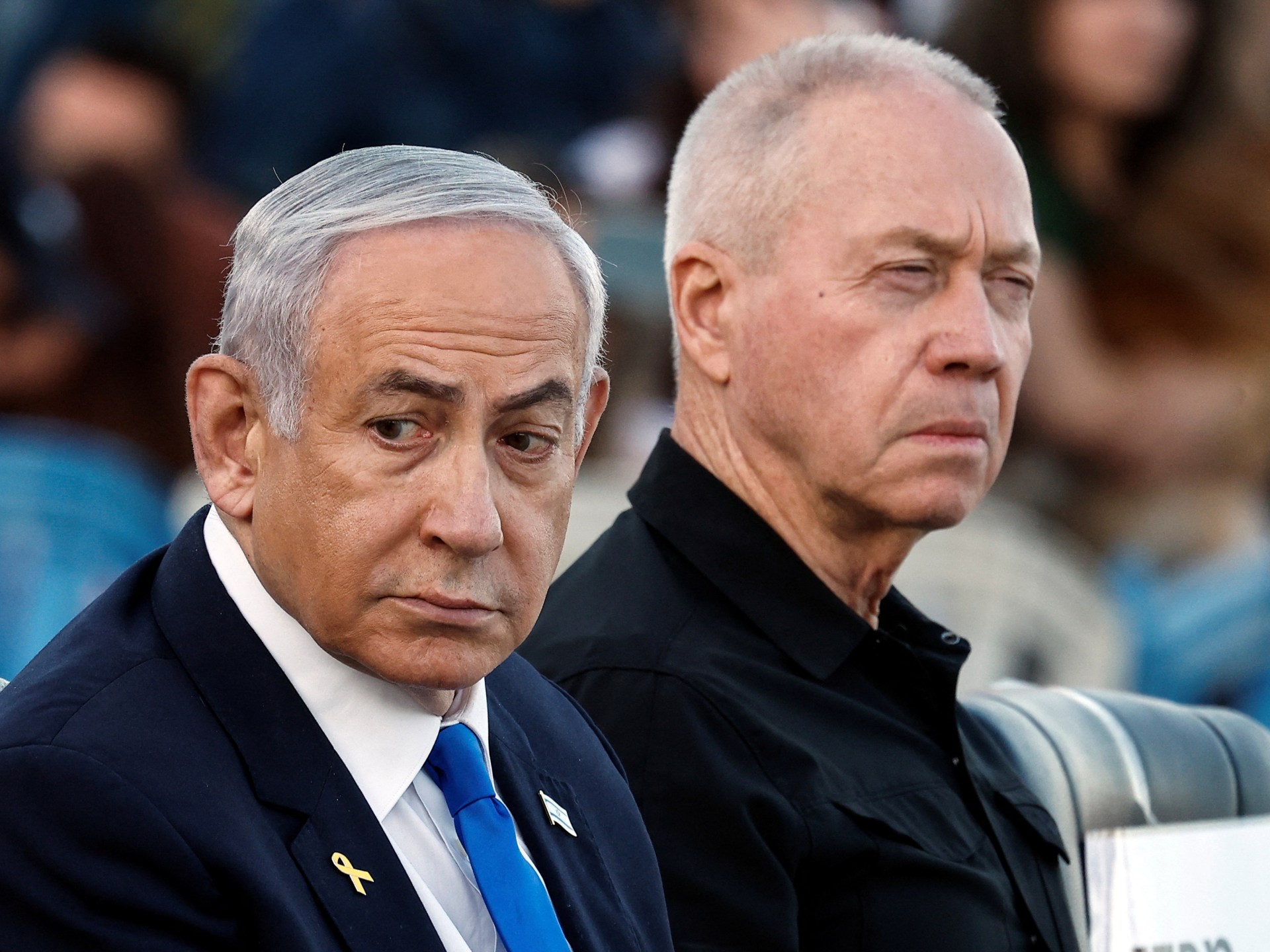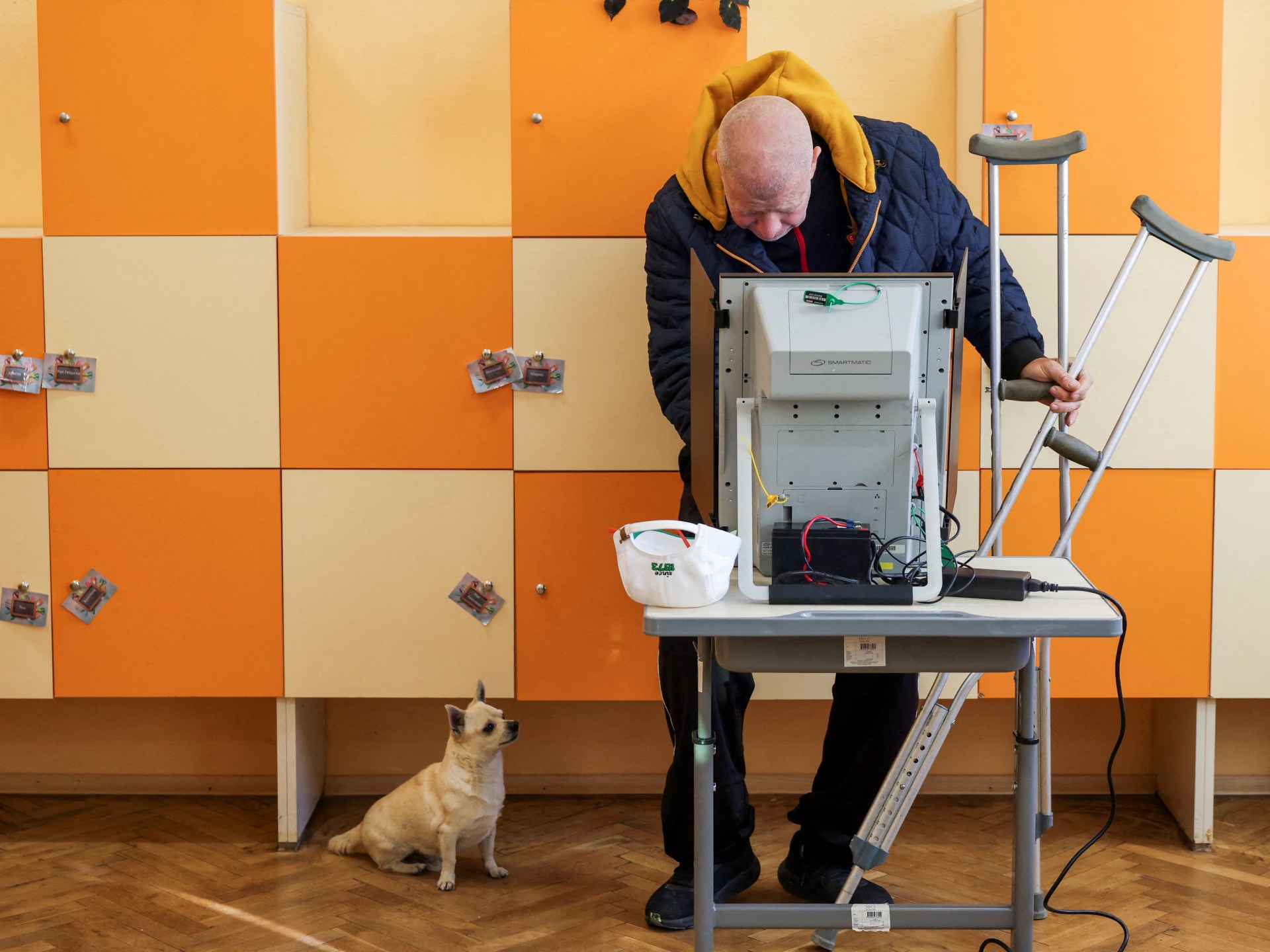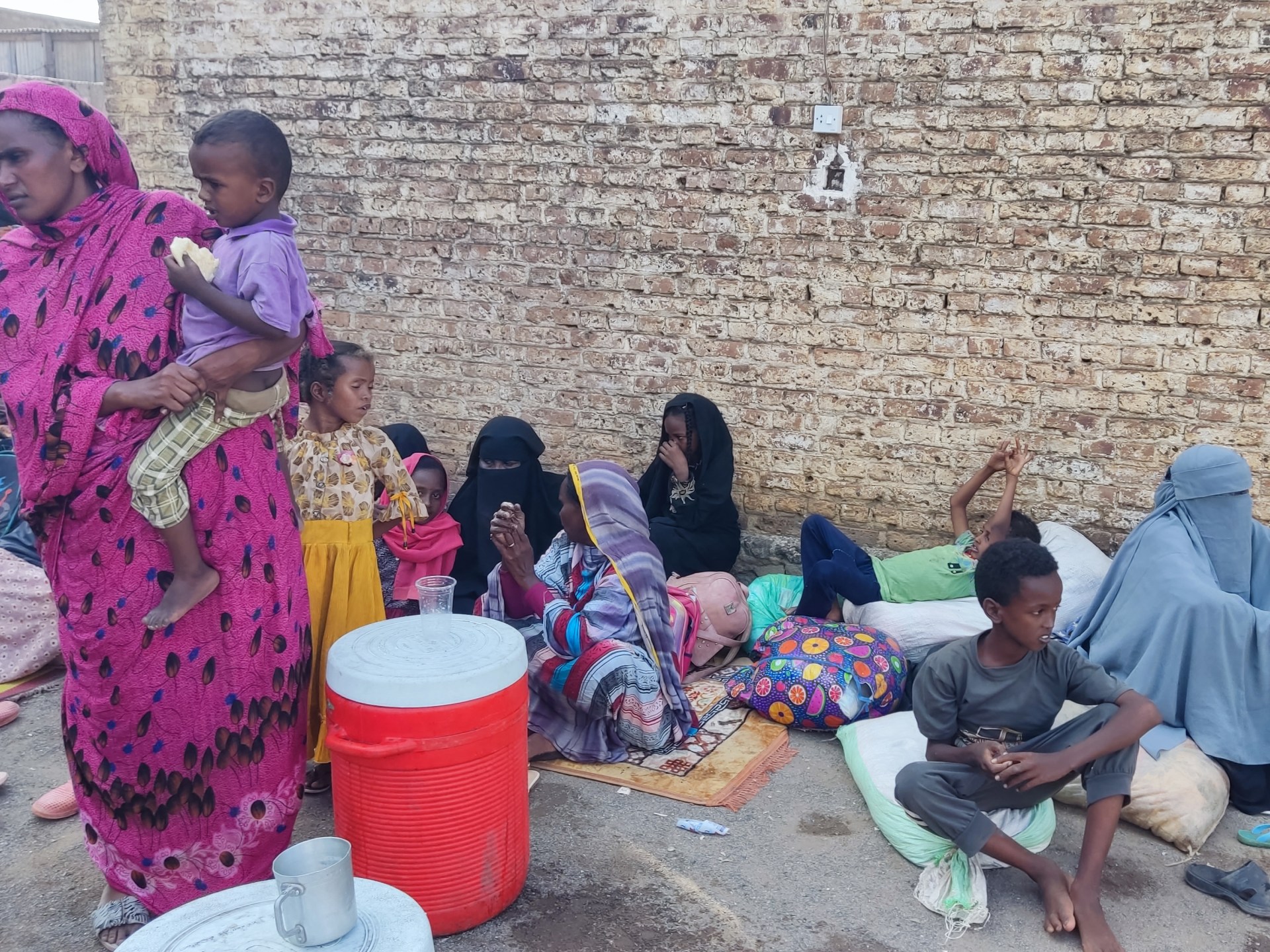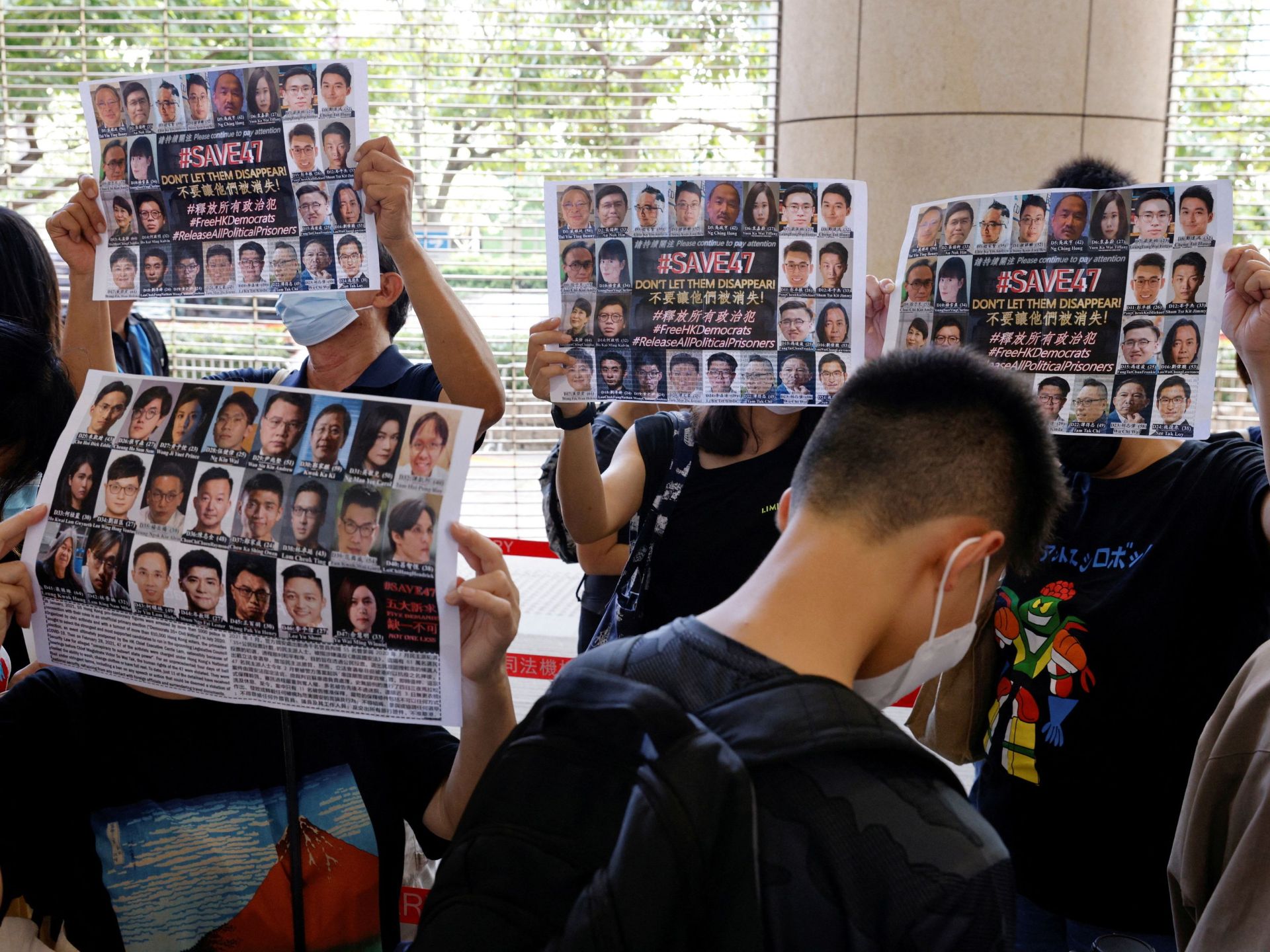Netanyahu, Gallant issued ICC arrest warrants for war crimes: What’s next?
 21 November 2024
21 November 2024


The International Criminal Court (ICC) has issued arrest warrants for Israeli Prime Minister Benjamin Netanyahu, his former Defence Minister Yoav Gallant and a top Hamas leader on charges of war crimes and crimes against humanity.
This is the first time that Netanyahu or any Israeli official has been indicted by an international court for the ongoing war on Gaza.
In a decision posted online on Thursday, the ICC charged Netanyahu, Gallant and Hamas leader Mohammed Deif over Hamas’s October 7, 2023 attacks on Israel and Israel’s subsequent genocidal war in Gaza. Israel claimed to have killed Deif in July, however. It is unclear whether he is still alive.
Effectively, the defendants are now internationally wanted suspects and ICC member states are under legal obligation to arrest them.
Israeli officials slammed the move, calling it “anti-Semitic”. Here’s what this all means:
(Al Jazeera)
What is the ICC accusing Netanyahu and Gallant of?
In a decision posted online, the court said it had issued arrest warrants for Netanyahu and Gallant for “crimes against humanity and war crimes committed from at least 8 October until at least 20 May, 2024” and which related to the use of starvation and the deliberate targeting of medical facilities.
The court’s Prosecutor Karim Khan first requested the arrest warrants in May. The court says there are reasonable grounds to believe Netanyahu and Gallant bear “criminal responsibility” for causing mass starvation in Gaza.
The court has accused both Netanyahu and Gallant of jointly using “starvation as a method of warfare”, referring to Israel’s systemic restriction of food and humanitarian aid supplies into the Gaza Strip throughout the war.
The ICC further accused the two leaders of the “crimes against humanity of murder, persecution, and other inhumane acts” and referenced Israel’s deliberate targeting of Gaza’s hospitals and its refusal to allow humanitarian and medical supplies into the Strip.
What happens next? Does the ICC have a case?
The indictment means there will be a trial if the arrests are made. There will not be a trial until that happens, however, as the court does not have the power to hold a trial “in absentia”.
Speaking to Al Jazeera after the news of the arrest warrants broke, political analyst Neve Gordon, professor of human rights law at Queen Mary University of London and vice president of the British Society for Middle East Studies, said the ICC had a strong case, and that proving the Israeli leaders’ intention to weaponise food will be fairly straightforward.
“Israel has been using starvation as a weapon in the Gaza Strip for close to 20 years,” Gordon said. “I think the intention of using food as a weapon is clear by the statements of Israeli leaders and the practices of the Israeli military, and I think this will be easy to prove.”
All 36 hospitals in the Gaza Strip have been targeted, he added, and ambulances and healthcare workers hit in the near-incessant bombing campaigns on the Strip, as Al Jazeera has reported. Gordon said this evidence would help build the ICC prosecutor’s cases.
Practically speaking, will this change anything?
It may. Netanyahu and Gallant will find it difficult to travel internationally the same way they did before Thursday, as they could be arrested. That is because all 124 countries that are signatories to the Rome Statute of the International Criminal Court are legally obliged to arrest them if they travel to those countries.
However, this would not apply in the United States. Washington and Israel are not subject to ICC obligations as they are not members of the court. In practice, it is not likely that Netanyahu or Gallant will be handed over to the ICC if they travel to the US.
Besides this, the ICC has no powers of enforcement and lacks its own police force. The court also issued an arrest warrant for Russian President Vladimir Putin in March 2023 for Russia’s invasion of Ukraine, but Putin has not been arrested.
Despite this, human rights organisations welcomed the decision to issue the warrants. Balkees Jarrah, senior counsel at Human Rights Watch, said: “The ICC arrest warrants against senior Israeli leaders and a Hamas official break through the perception that certain individuals are beyond the reach of the law.
“Whether the ICC can effectively deliver on its mandate will depend on governments’ willingness to support justice no matter where abuses are committed and by whom. These warrants should finally push the international community to address atrocities and secure justice for all victims in Palestine and Israel.”
Analysts also said the ICC’s decision has far-reaching implications for Western nations – particularly the US and European countries like Germany and the United Kingdom, which supply arms to Israel.
“By issuing the arrest warrant, the ICC has also made a certain demand on Western countries,” Gordon, the political analyst, told Al Jazeera. “If the leaders of Israel are charged with crimes against humanity, it means the weapons European countries are sending are used to carry out crimes. Western countries must now reassess their trade agreements.”
Which Hamas leader has an arrest warrant been issued for?
The ICC also issued an arrest warrant for Hamas leader Mohammed Deif, also known as Mohammed Diab Ibrahim al-Masri, relating to his role in the October 7 Hamas-led attack on army outposts and villages in southern Israel, which resulted in the deaths of 1,139 people and the capture of more than 250. However, the Israeli military claimed to have killed Deif in July this year.
Deif was the leader of Hamas’s military wing, the Qassam Brigades. Hamas has not confirmed the commander’s killing.
What reactions have there been to the arrest warrants?
Israeli officials immediately slammed the decision to issue the warrants, saying Israel has a right to defend itself and calling the move “anti-Semitic.”
In a post on X, opposition leader Yair Lapid condemned the court’s decision, characterising Israel’s war on Gaza as a fight for its life “against terrorist organisations”.
Former Defence Minister Avigdor Lieberman also spoke out against the ruling, writing on X that it shows the international community’s “double standards and hypocrisy”.
“The state of Israel will not apologise for protecting its citizens and is committed to continuing to fight terrorism without compromise,” Lieberman said.
US President Joe Biden in May criticised the decision of the court’s prosecutors to apply for warrants, and said the US would stand by Israel. The US has not commented on Thursday’s development.
Related News

Russia-Ukraine war: List of key events, day 991

Bulgarians vote in another election, but end to political deadlock unlikely

Conflict condemns Sudan to huge displacement, rampant sexual violence: UN

